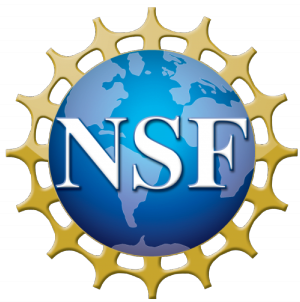June 1st, 2010 | EVALUATION
As part of community building efforts, the Nanoscale Informal Science Education (NISE) Network undertook regional site visits during Year 5 of the project. The purpose of the site visits was to deepen relationships with a small group of partners. The Network Community Group saw the site visits as an opportunity to create a stronger sense of community within the Network and build institutions' capacity to engage their local public in nano. Partners with the highest potential to infuse nano into their institution and/or become actively involved with the Network were chosen for a site visit. A total of 26 partner institutions were visited between April and August 2010. Formative evaluation was carried out to improve the site visit process during Year 5 and help inform future work with partners in Years 6-10. The formative evaluation was based on six evaluation questions, which aligned with partner outcomes. To what extent do staff feel more closely connected to the NISE Network? To what extent have partners' increased their awareness about how nano could be incorporated into other topics or programs they currently have at the institution? To what extent have partners learned how they may be able to share what they have created with others? To what extent have partners increased their awareness of the ways they could work with local scientists? To what extent have partners increased their awareness about other local nano scientists/researchers to possible consider for future collaborations? To what extent have partners increased their awareness of resources available from the NISE Network, including the online catalog? The evaluation was carried out using a mixed-methods design. Data collection methods included debrief forms, debrief interviews, partner interviews, site visit observations, content analysis of pre and post-visit correspondence and 2010 NanoDays reports, and pulling information from the NISE Network Quickbase database. Overall, the site visits were beneficial to the NISE Network and the partners visited. Site visit teams felt the visits were useful for understanding partners' various nano education efforts, seeing how NISE Network resources are being used and adapted, having face-to- face conversations about partners' needs, meeting a variety of staff at an institution, and engaging in a variety of conversations about the Network and its resources. Partners reaped a variety of benefits from the visits including feedback on their educational efforts, ideas to integrate nano in their activities, personal time with NISE Network staff, and increased exposure of their staff to the NISE Network and nano in general. The Site Visit Observation Protocol, Debrief Forms (surveys), and Interview Questions are included in the appendix of this report.
Document
SiteVisitFormativeEvaluation2010Final.pdf
Team Members
Amy Grack Nelson, Evaluator, Science Museum of MinnesotaGayra Ostgaard, Evaluator, Science Museum of Minnesota
Nanoscale Informal Science Education (NISE) Network, Contributor
Funders
Funding Source: NSF
Funding Program: NSEC; Materials Centers & Education; NUE; Collaborative Research; NIRT; AISL
Award Number: 0532536
Funding Amount: 19999169
Related URLs
www.nisenet.org
Nanoscale Informal Science Education Network
Tags
Audience: Evaluators | Museum | ISE Professionals
Discipline: Education and learning science | Technology
Resource Type: Evaluation Reports | Formative | Interview Protocol | Observation Protocol | Research and Evaluation Instruments | Survey
Environment Type: Professional Development | Conferences | Networks | Professional Development and Workshops | Resource Centers and Networks

